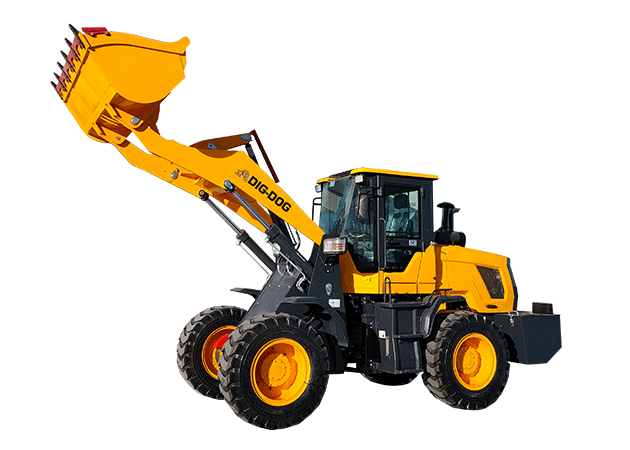The Different Types of Loaders In Construction
Loaders are essential pieces of equipment in the construction industry, used for a wide range of tasks such as loading materials into trucks, excavating, and grading. There are various types of loaders available, each designed for specific applications and environments. In this article, we will explore the different types of loaders commonly used in construction and their unique features.

Front-End Loaders
Front-end loaders, also known as bucket loaders, are one of the most commonly used types of loaders in construction. They are equipped with a large bucket at the front that can be raised and tilted to scoop and lift materials. Front-end loaders are versatile and can handle a wide range of materials, making them ideal for tasks such as loading and transporting aggregates, soil, and debris on construction sites.
Backhoe Loaders
Backhoe loaders are another popular type of loader that combines the capabilities of a loader and an excavator. They feature a front bucket for loading and a backhoe attachment for digging and excavation. Backhoe loaders are highly versatile and can perform multiple tasks, including digging trenches, backfilling, and material handling. Their compact size and maneuverability make them suitable for working in confined spaces.
Skid Steer Loaders
Skid steer loaders are small, compact machines with a unique steering mechanism that allows them to turn within their own footprint. They are commonly used in construction for tasks such as digging, lifting, and loading materials. Skid steer loaders are highly maneuverable and can be equipped with a variety of attachments, making them suitable for a wide range of applications, from landscaping to demolition.
Wheel Loaders
Wheel loaders are large, heavy-duty machines equipped with a front-mounted bucket for loading and transporting materials. They are commonly used in construction for tasks such as stockpiling, loading trucks, and handling bulk materials. Wheel loaders are known for their high productivity and efficiency, making them ideal for demanding construction environments.
Compact Track Loaders
Compact track loaders are similar to skid steer loaders but feature rubber tracks instead of wheels, providing enhanced traction and flotation on rough or soft terrain. They are commonly used in construction for tasks such as grading, excavation, and material handling. Compact track loaders are well-suited for challenging ground conditions and are often preferred for projects that require minimal ground disturbance.
In conclusion, the construction industry relies on a variety of loader types to meet the diverse demands of different projects. Each type of loader offers unique features and capabilities, allowing construction professionals to select the most suitable equipment for their specific requirements. Whether it's front-end loaders for heavy-duty material handling or compact track loaders for precision work in sensitive environments, the range of loader options available ensures that construction tasks can be completed efficiently and effectively. Understanding the characteristics of each loader type is essential for making informed equipment choices and optimizing productivity on construction sites.
As technology continues to advance, we can expect further innovations in loader design and capabilities, further enhancing their performance and versatility in the construction industry. By staying informed about the latest developments in loader technology, construction professionals can continue to benefit from the ongoing evolution of these essential pieces of equipment.




